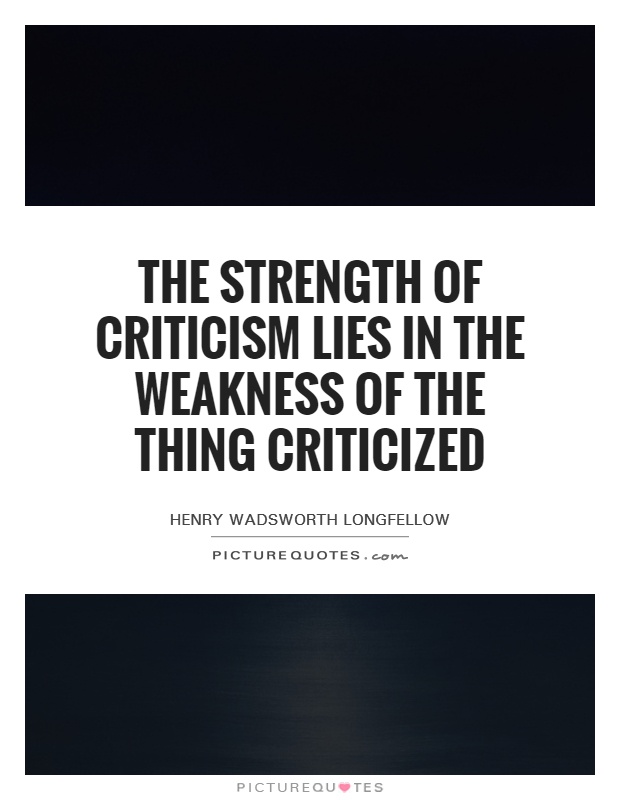The strength of criticism lies in the weakness of the thing criticized

The strength of criticism lies in the weakness of the thing criticized
Henry Wadsworth Longfellow, one of the most beloved American poets of the 19th century, is no stranger to criticism. Throughout his career, Longfellow faced both praise and censure for his works, with some critics pointing out weaknesses in his poetry. However, it can be argued that the strength of this criticism lies in the very weaknesses that are identified in Longfellow's writing.One of the most common criticisms of Longfellow's poetry is that it is overly sentimental and lacks depth. Critics have accused him of being too focused on creating beautiful, lyrical verses at the expense of exploring complex themes or ideas. While this may be a valid critique, it is also what makes Longfellow's poetry so accessible and appealing to a wide audience. His ability to craft simple, melodic verses that resonate with readers has made him a household name and ensured that his works have stood the test of time.
Another criticism often leveled at Longfellow is that his poetry is too conventional and lacks originality. Critics have argued that his reliance on traditional forms and themes makes his work predictable and unexciting. However, it can be argued that Longfellow's adherence to traditional poetic conventions is precisely what gives his poetry its enduring appeal. By drawing on established forms and themes, Longfellow was able to create works that spoke to universal human experiences and emotions, ensuring that his poetry would resonate with readers for generations to come.












 Friendship Quotes
Friendship Quotes Love Quotes
Love Quotes Life Quotes
Life Quotes Funny Quotes
Funny Quotes Motivational Quotes
Motivational Quotes Inspirational Quotes
Inspirational Quotes